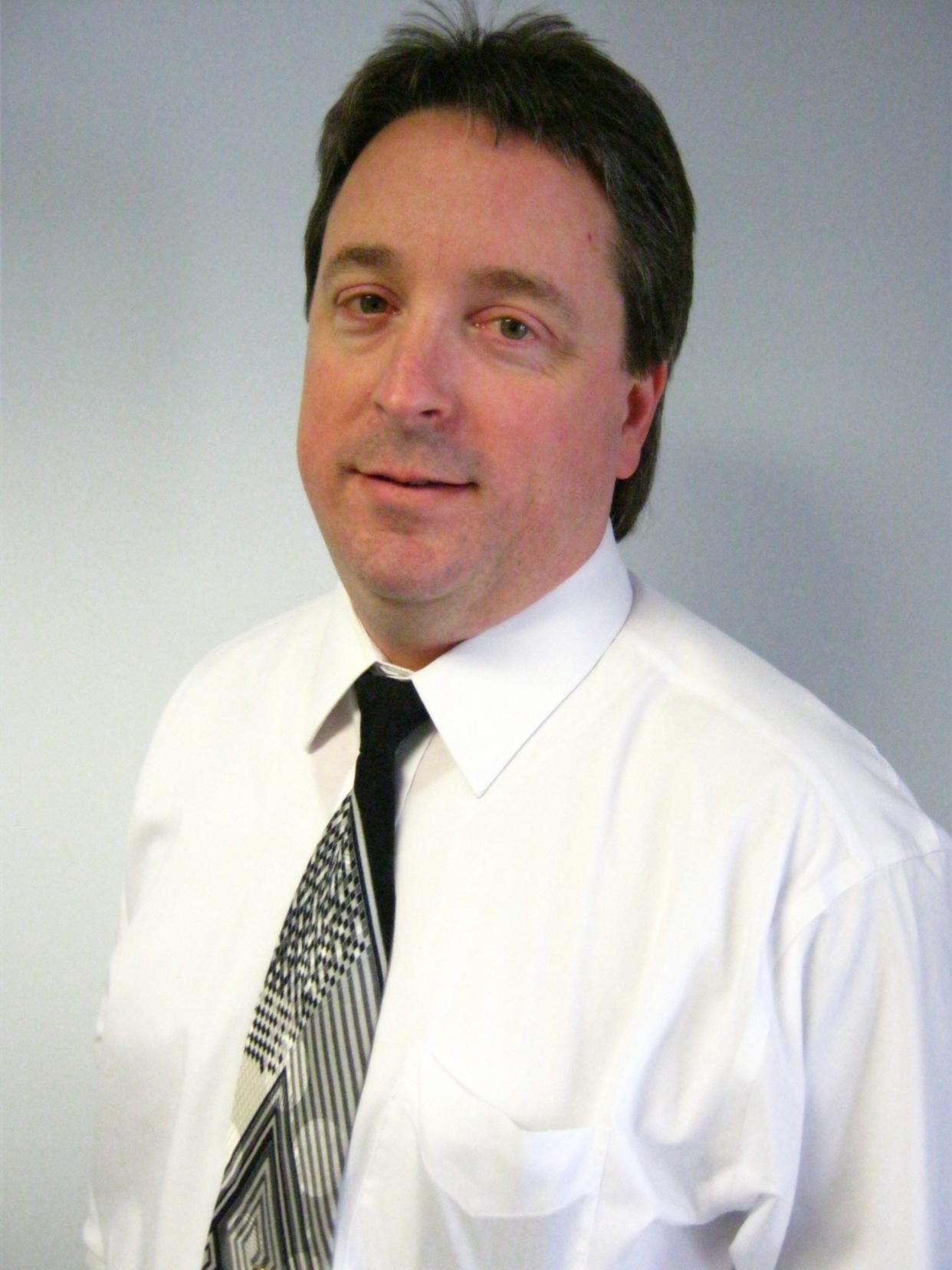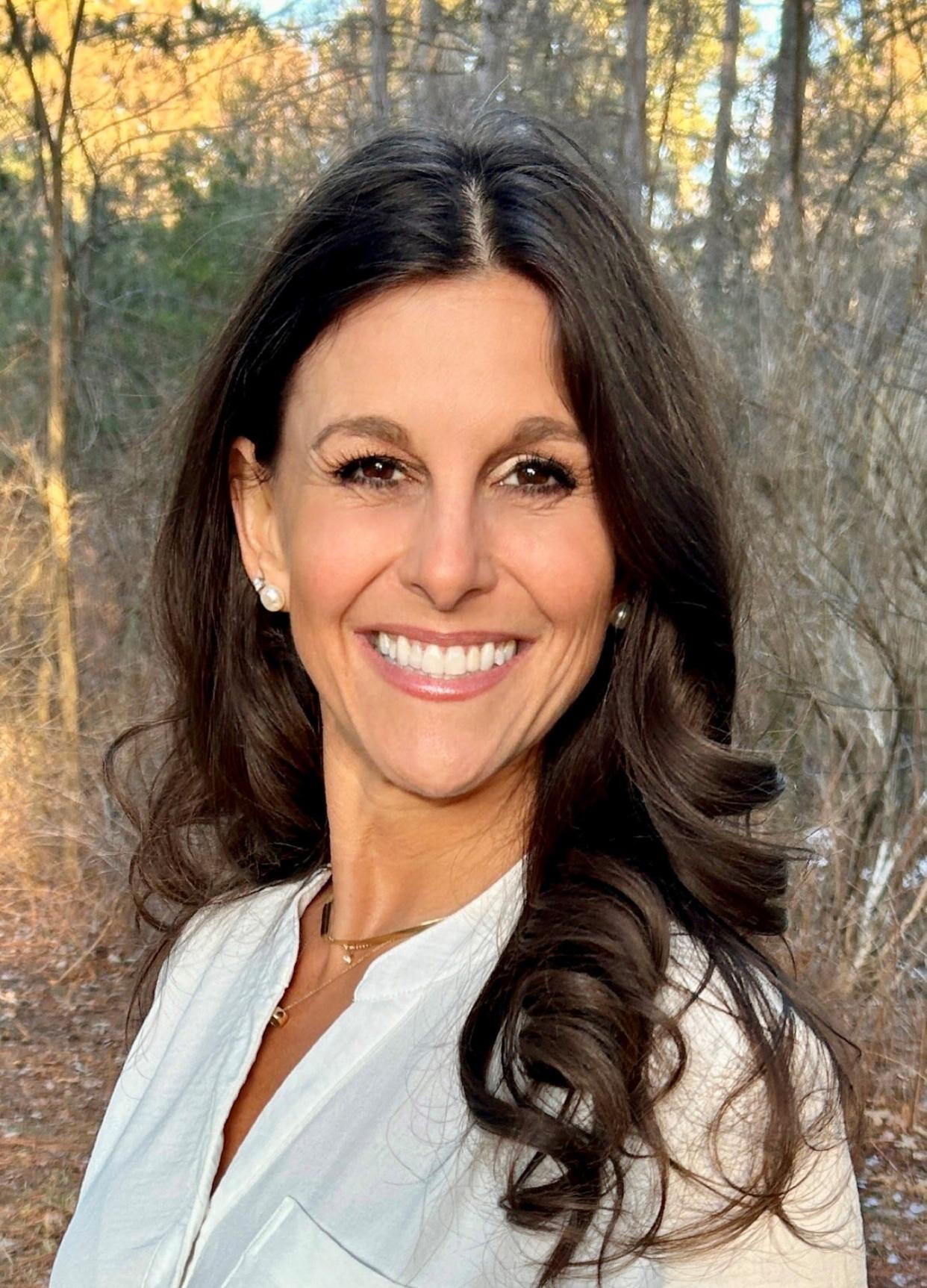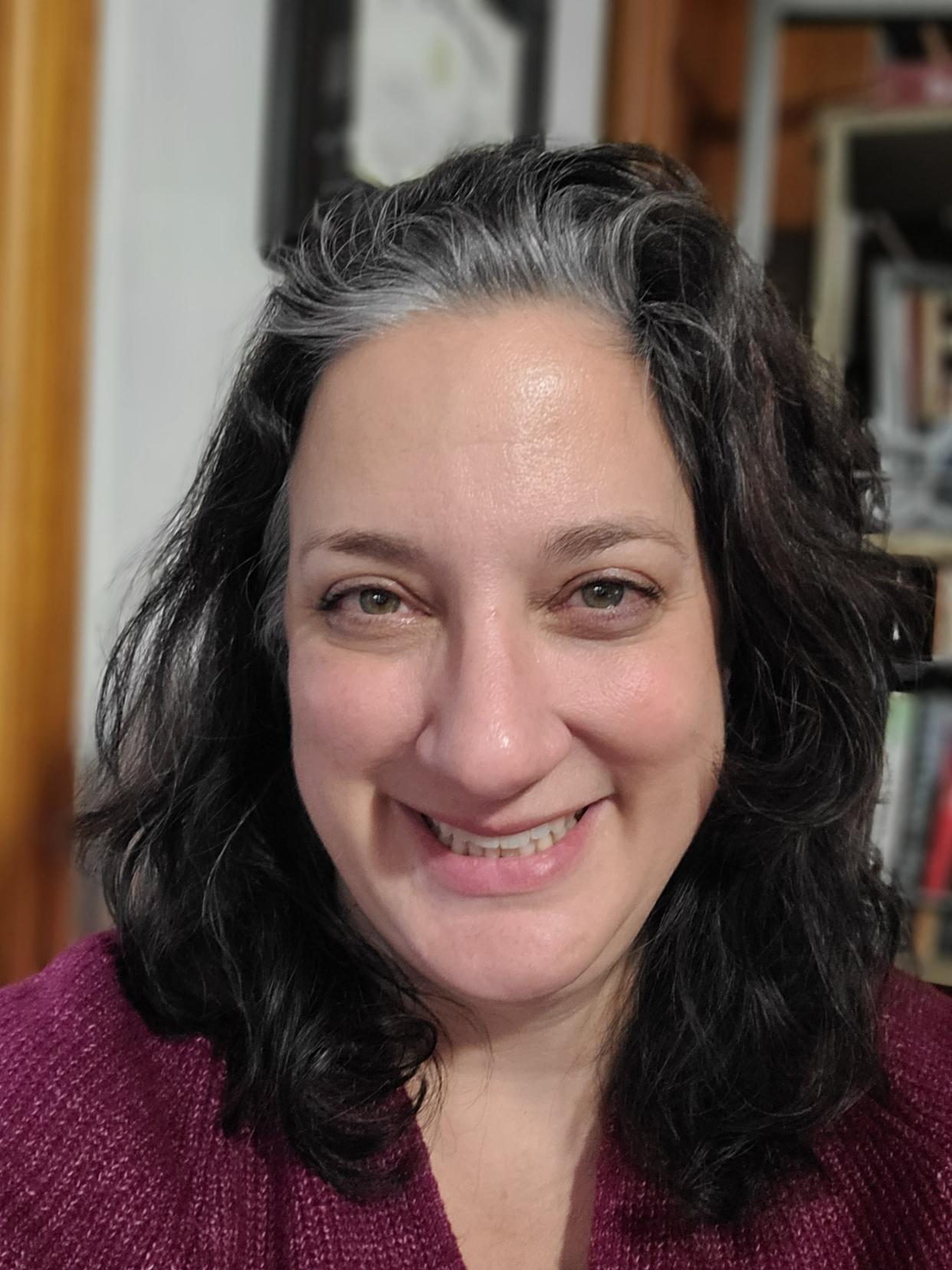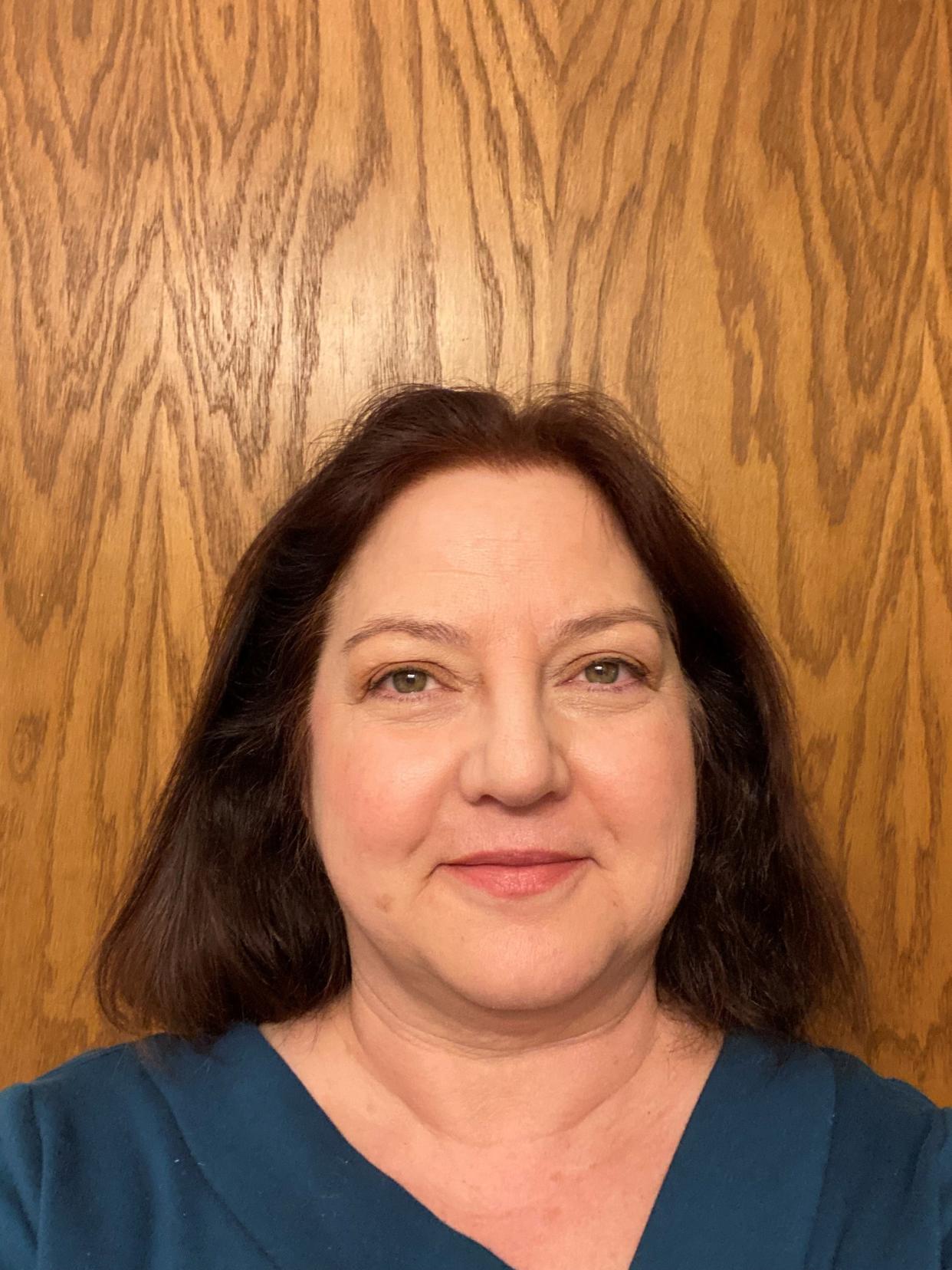Meet the candidates running for Wausau School Board in the April 2 election
Incumbents Patrick McKee, Cody Nikolai and Karen Vandenberg will face challengers Sarah Marie Brock, Jane Rusch and Fred Tealey for three seats on the Wausau School Board in the April 2 election.
School board members serve three-year terms. Three of the nine seats on the School Board are up for election this year.
To learn more about registering to vote and to find your polling place, visit My Vote Wisconsin.
The Wausau Daily Herald asked each of the candidates to address important issues in the School District and why they are running for the position. Nikolai did not provide responses.
Patrick McKee

Age: 53
Residence: Wausau
Occupation and education: Vice president with United Health; bachelor's degree in behavioral science and law from University of Wisconsin-Madison
Relevant experience: I've served 12 years on the School Board.
Karen Vandenberg

Age: 50
Residence: Wausau
Occupation and education: Physical therapist; master's degree in physical therapy from Northwestern University, bachelor's degree in biology and psychology from Valparaiso University and graduate of Waukesha North High School
Relevant experience: I have served on the Wausau School Board for the past three years gaining critical insight into district and staff needs, school finances, and student achievement. I bring state-level experience from my role on the Wisconsin Association of School Boards Policy and Resolution Committee, delegate work and attendance at the State Education Convention allowing me to learn from leading educators and board members. As a parent of four students in the Wausau School District and a teen mentor for 20 years in Wausau, I have had countless opportunities to engage with staff and students and appreciate their valuable perspectives.
Campaign website/Facebook page:Karen Vandenberg for Wausau School Board on Facebook
Sarah Marie Brock

Age: 48
Residence: Wausau
Occupation and education: Manager of Vino Latte and graduate assistant at Gonzaga University; currently pursuing a Ph.D. in leadership studies from Gonzaga. I also have a master's degree in organizational leadership with a servant leadership concentration from Gonzaga, a master's degree in speech communication from Emerson College and a bachelor's degree in communication and English from the University of Wisconsin-Stevens Point.
Relevant experience: I have more than 10 years as an educator, with experience as both a classroom teacher and public-school administrator. I have a strong understanding of boards both as a board member and an administrator reporting to a board. I know and have experience with their roles, responsibilities, opportunities and challenges. I have experience working directly with highly at-risk students including first-generation immigrants, undocumented immigrants, minorities, LGBTQIA+ students, and students from families living below the poverty line. I have 10-plus years in management in a locally-owned small business.
Campaign website/Facebook page:Brock for Wausau School Board on Facebook
Jane Rusch

Age: 63
Residence: Wausau
Occupation and education: I am technically retired, and I am my 86-year-old mother's caregiver. My last paying job was as a correctional officer at Taycheedah Correctional Institution. I attended the University of Wisconsin-Oshkosh for criminal justice and returned there after a job-ending injury to work toward an elementary education degree.
Relevant experience: I spent many years volunteering in our schools. I was the popcorn mom at Riverview for 11 years, helped in the libraries at Riverview, GD Jones, and Mann. I did a couple of stints as PTO president. Organized fundraisers, carnivals, and helped with the reading club.
Fred Tealey

Residence: Wausau
Occupation and education: Retired public school teacher, and I am an aerobic instructor at the Woodson YMCA and also owner of a small business. I am a graduate of Eau Claire Memorial High School, the University of Wisconsin-Eau Claire, UW-Stevens Point and have taken additional classes at UW-Madison.
Relevant experience: I am a veteran high school teacher and mock trial and debate coach of over 30 years.
Campaign website/Facebook page:Fred Tealey for Wausau School Board on Facebook
Why are you running for a seat on the School Board?
McKee: The district is currently in the middle of several high profile strategic initiatives. I bring an independent, data driven, analytical approach to setting district policy, which is beneficial when working through these initiatives.
Vandenberg: I am seeking reelection because I remain passionate about the priceless value of public education and I am convinced that strong public schools are essential to any thriving community. I want to promote an environment that empowers our staff and all students to achieve their highest potential and support policy that allows the Wausau School District to be an effective and superior district. As someone who has been deeply invested in serving the Wausau community and highly supportive of our educators, I believe I have demonstrated integrity and a commitment to listening to all stakeholders in order to make wise, data-driven decisions.
Brock: There are three core beliefs behind my decision to run for School Board. First, I believe that education is the most important function of a society, and the best possible tool with which we can change the world for the better. Second, I believe that at their best, school administrators, teachers, and parents can and should work together for the success of students. Finally, I believe it is the job of a Board of Education to facilitate and strengthen those relationships through listening, meaningful dialogue, and ensuring the focus remains on the students.
Rusch: I am running to return honesty and openness to the board. I would like to help heal the broken relationship with the public. I decided to run after seeing the unethical spending of the referendum money. I was on the board when the referendum question was determined. I was and continue to be appalled at the misuse of the public’s trust. Closing schools, combining the high schools, and banning books without widespread public buy in is unacceptable. These decisions were made without the necessary due diligence or public input.
Tealey: 1) For the last two years, I have been an outspoken advocate of maintaining both East and West and a slowing down of restructuring neighborhood schools. The board has voted to keep both high schools as of now, but my fear is that the issue of creating one large high school will resurface. And as a new member, I will be vigilant to keep our high schools intact. 2) Raising test scores, retaining and attracting highly qualified teachers are additional priorities.
Residents often talk about academic challenges in the School District. If elected, how will you work to improve academic performance in Wausau schools?
McKee: I will continue to work toward returning classroom environments to ones that allow teachers to teach and willing students to learn. We need to build academic achievement from the bottom up. I want to know what individual teachers need in their classroom to teach at the highest level and then work to deliver those needs.
Vandenberg: The Wausau School District continues to work hard to recover the real and significant learning loss for students at all levels from the deleterious lack of in-person instruction during COVID. Providing necessary classroom and in-building support for our teachers to address our struggling learners is critical while not leaving behind the students who need to be challenged. Listening to our staff and supporting their initiatives to address achievement gaps is absolutely a priority of mine. Further, effectively addressing problematic classroom behaviors that create obstacles to learning is essential and has been an expressed need from our staff, students and parents alike.
Brock: The board makes decisions affecting academic performance with regards to budget, policy oversight, and the hiring and evaluating of a superintendent. Should I be elected, my core considerations would be the needs of the Wausau community, and data-driven research from experts. My experience as an educator has taught me to value small class sizes, strong student support systems, teacher training and support, and meaningful relationships among students, teachers, parents, and administrators. When these things are not prioritized, academic performance suffers, as does the overall student and adult culture of a school.
Rusch: One issue that needs to be dealt with to improve academic performance is to address student behavior in the classroom. I believe administrators are over interpreting statutes and guidelines, thereby keeping disruptive students in classrooms to the detriment of all, including the disruptive child. Another issue is expecting one teacher to teach children with such a wide expanse of capabilities, alternatives need to be investigated and implemented.
Tealey: Smaller class sizes, use of teacher aides and "catch up" academic work for summer school need to be utilized for the students who fall behind. Academic performance also can be improved by providing a school with a sense of inclusion: academic extracurricular activities, sports and recreational endeavors, art, music, theatre pursuits have been proven to help students feel a part of their school experience and can enhance their academic performance. Social workers and guidance counselors can be active in tracking students who are falling behind, offering alternatives to those students to achieve their academic goals.
The School Board has been discussing district boundaries and consolidating elementary schools for several years. How would you like to see the board address this and what would a successful plan look like to you?
McKee: I want to first see the demographic data analysis currently being gathered. This will provide a comprehensive view of current and future locations of our students. Success criteria includes: 1) The board making informed decisions based on data and direct stakeholder feedback. 2) Decisions are made that will maximize student success in the most efficient way possible. 3) Being able to articulate to the stakeholders the value and cost of any proposed changes.
Vandenberg: I sought and fully supported the hiring of an unbiased, experienced demographer to approach the complex work of elementary consolidation. I believe the best plan forward is data-driven, having thoroughly investigated all variables including building maintenance needs, capacity, neighborhood growth, bussing and traffic patterns. Also highly valuable will be the diverse task force to provide a representative voice to staff, parents, community and business members. These decisions are understandably difficult, but also critically necessary in order to maintain a financially solvent district that can provide, with excellence, for all of our students, the resources required in order to be successful.
Brock: Decisions about district restructuring should not be made lightly, and certainly not without substantial data, the consideration of future trends, and significant community input. The lack of transparency has led to a loss of trust, and when trust degrades, meaningful change and growth become impossible. The board must consider student opportunities, curriculum consistency and equity, transportation, staffing, etc. I believe a successful plan places student success at its heart, and that the recent board decision to bring in an outside agency to take the lead on data collection and community involvement is a huge step in the right direction.
Rusch: Consolidations need to be at the behest of the public. The district loves their neighborhood schools, until that changes I won’t vote to consolidate. As for border changes, the last time it was done we got constituent input. We had a committee made up of a crosscut of the community. We were open and honest and happily received public input. I would expect and require the same.
Tealey: The high schools should not be merged. The proposed rampant closing of five elementary schools was completely irresponsible by last year’s board. The community was not effectively informed of this significant decision. Restructuring needs overall community analysis and discussion. If there are boundary changes, the administration needs to engage the parents. The best outcome will take time and participation. It should be noted that some of these schools do pose as neighborhood centers and much care is needed not to destroy those entities.
The School District is currently seeking a new superintendent. What characteristics and qualities do you think are most important in a candidate to fill this position?
McKee: We need someone who can lead with integrity and transparency. They need to be humble, trustworthy, engaging and authentic. We need a leader who can effectively build positive energy and momentum throughout the district and community.
Vandenberg: Selecting a superintendent is one of the most important roles of the board and will have significant and lasting impact on our district. It is my priority to choose a highly qualified individual who understands the needs of our district and has superior communication skills, approachability and integrity. An individual who is an effective vision caster and a collaborative, strategic leader with a commitment to being present in our schools and community, developing relationships and building trust, is absolutely essential. These qualities are paramount and were similarly represented in our surveys and focus group discussions, which will guide the search.
Brock: The relationship between a superintendent and School Board is critical. A strong, positive, and trusting relationship which includes a clear understanding of roles and responsibilities allows both the superintendent and the board to perform at its best. A strong candidate would be able to demonstrate a passion for student success, a vision for the future, a commitment to transparency and open communication, and a history of strong relationships with employees, community members, and supervisors. I would want to ask about core values, and the ones I would be looking for would be authenticity, active listening, and accountability.
Rusch: A new superintendent needs to not be interested in making a mark for themselves. They need to be honest, unselfish, caring, willing to listen and learn. The board needs to be open to applicants who may not have previous superintendent experience, sometimes bad habits are difficult to unlearn. If a superintendent is being considered, the board needs to go beyond talking to the person's current board members, talk to parents and other community members.
Tealey: 1) Transparency: The community deserves to have a superintendent who tells the truth. 2) Public relations advocate: A bi-monthly column by the superintendent in the media would provide the community with up-to-date information about developments in the district. 3) A team player who includes teachers as well as administrators in problem-solving situations and innovations and changes in curriculum. 4) A student advocate: The superintendent who can become aligned with students in the classroom or activities. For example, teaching a class on a temporary basis.
Marathon County inspections: One restaurant with 11 violations and 4 require reinspection
More local news: Pope Francis appoints new bishop to serve Diocese of La Crosse as Bishop Callahan retires
Erik Pfantz covers local government and education in central Wisconsin for USA-TODAY NETWORK-Wisconsin and values his background as a rural Wisconsinite. Reach him at epfantz@gannett.com or connect with him on X (formerly Twitter) @ErikPfantz.
This article originally appeared on Wausau Daily Herald: April 2024 election: Wausau School Board candidates
